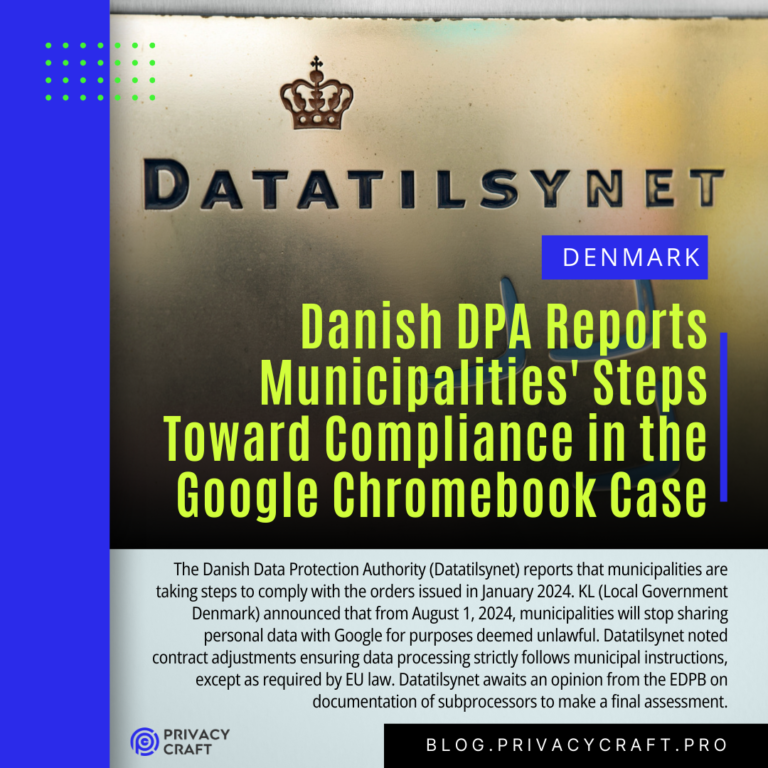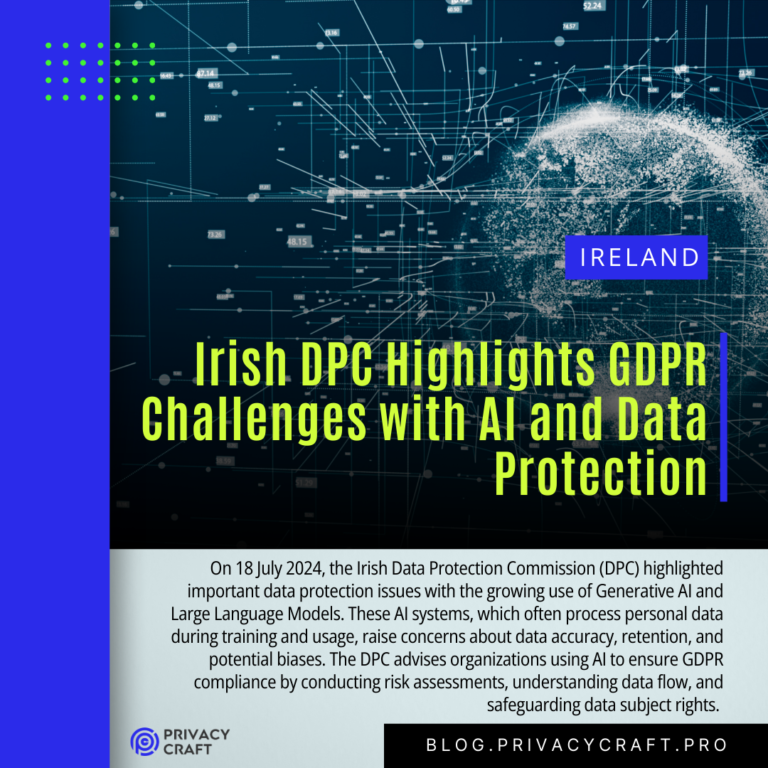Danish DPA Reports Municipalities’ Steps Toward Compliance in the Google Chromebook Case
The Danish Data Protection Authority (Datatilsynet) reports that municipalities are taking steps to comply with the orders issued in January 2024. KL (Local Government Denmark), representing 52 municipalities, announced that from August 1, 2024, municipalities will stop sharing personal data with Google for purposes deemed unlawful by the Authority. Datatilsynet noted contract adjustments ensuring data processing strictly follows municipal instructions, except as required by EU law. Allan Frank, IT security specialist at Datatilsynet, highlighted remaining issues. The Authority awaits an opinion from the European Data Protection Board on documentation of subprocessors to make a final assessment.
Danish DPA Reports Municipalities’ Steps Toward Compliance in the Google Chromebook Case Read More »




